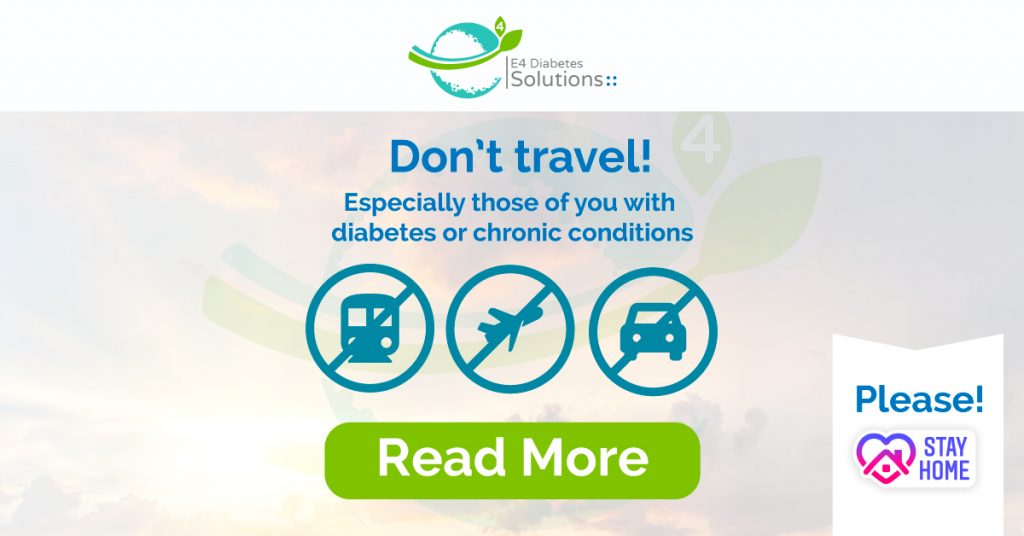Our recommendation would be do not travel. Why not?
a) It is entirely possible that at some point, if this becomes very serious in terms of spread, that the United States, and many other countries, will go into significant lockdown. That will mean you will not be able to go back to wherever you’re starting your journey from in your original timeline, you may be caught in the middle in an unfamiliar environment and location, not having access to your full resources that you would at home. For that most important reason, we strongly suggest you avoid all travel and stay home.
This is of course, a very personal decision and many of you will feel that it’s not the time that you have trips planned and reasons to go visit someone, or someplace, or take a long planned trip. And it is completely understandable that this would be something that you feel: It’s okay, I don’t need to do that!. We would invite you to consider the following scenarios: Let’s say you travel to a particular location, and then a quarantine is imposed not permitting travel to and from that location. You would then be forced to stay at that location and if it is a location where you need to pay to stay, you would likely be needing to pay and stay as well for a minimum of one to two extra weeks, if not longer.
b) Consider whether you have the budget to be able to afford an extra two weeks of stay at some random point in the intermediate of your journey.
c) Whenever the contagion reaches its peak, which is estimated to be within two to six weeks, hospitals will be overwhelmed, as they have been in Italy, and you will not be able to seek or receive medical care, unless it is a dire emergency. Already, in Italy, ambulances are taking one hour to reach people, whereas before they have taken only five to 10 minutes. Consider a completely unrelated accident to the coronavirus: consider that you’re driving and suddenly car slips, and there’s an accident. I’m considering that you might require some level of medical attention in order to heal completely. If that were the case, you would not be able to receive that attention because all the hospital focus would be on people requiring critical care due to coronavirus complications, and you would be at the end of the queue. This is currently happening in Italy: very difficult triage decisions are being made and many people are needlessly dying because they did not have access to the hospital care that they would have otherwise had. For example, imagine someone suffers a stroke or a heart attack: under normal cases you’re traveling, you get rushed to the emergency room and you’re treated very quickly and all is well. In this case, you will not likely be able to find a hospital bed to reach in a quick and efficient manner because they will be taken by coronavirus cases. Furthermore, the last place you want to be right now is in a hospital, because most of the people there will be coronavirus patients who will be sick with the virus and just, like in today’s environment, many of the infections that people get, occur in the hospital. Many people go into the hospital without an infection, and come out of the hospital with an infection. In fact, they end up staying in the hospital longer because they get infected by a bacterial or some other infection that they did not have before entering the hospital. So hospitals, end up being a place where too many times get transmissible bacterial or viral infections. Especially now, since the coronavirus will be prevalence at hospitals, it would be the highest risk scenario for you to be at one of them. Even if you just sprained your ankle, even if you just needed some routine care at an emergency room, even if you could get in, that would be the highest risk place to be. So, why put yourself at a high risk? Why add the risk of travel, and being caught away from home to your life in this time? It is a risk that we would strongly suggest you consider and weigh against the benefit of your travel.

